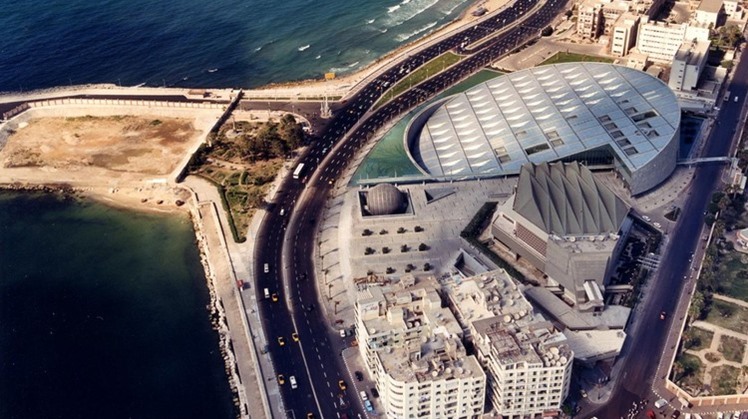Today marks the twentieth anniversary of the original date for the revival of the ancient Library of Alexandria in a huge project carried out by Egypt in partnership with the United Nations, to build the new Library of Alexandria in a site close to the old library in the Shatby area in Alexandria, and the global cultural celebration began with the opening of the Library of Alexandria in 2002, which It was scheduled to take place on April 23 of the same year, and was postponed due to the continued military escalation and the continuation of the Israeli aggression against the Palestinian people in the occupied land, which led to the outbreak of student demonstrations at that time, where the original opening took place on October 16, 2002.
A revival of the Old Library of Alexandria, the largest library of its era, in a huge project carried out by Egypt in partnership with the United Nations, where the library was rebuilt in a location close to the old library in the Shatby area of the city.
Historical accounts differed among historians about who built the Royal Library of Alexandria or the Great Library as it was called. Others say that it was founded by Ptolemy II, considering that he was the one who completed it. Ptolemy the First ordered the establishment and organization of the library at his expense, and then completed it by his successor, Ptolemy II.
There is also a difference in the year in which it was established. There are those who say that it was established in 330 BC, and there are those who say that it was established in 288 BC. Many believe that the Library of Alexandria is the first libraries in the world, but this is not true. The libraries of Pharaonic temples were known to the ancients. The Egyptians, but it was for the priests only.
Hence the greatness of the Royal Library of Alexandria, because it is the oldest public governmental library in the ancient world. It contains the largest collection of books in the ancient world, which numbered at that time to 700,000 volumes. The books and sciences of the Pharaonic and Greek civilizations were collected, and in it there was an event of scientific blending and intellectual cultural encounter with the sciences of the East and the sciences of the East. the West.
Its greatness is also due to the liberation of its scholars from the taboo of politics, religion, gender, race and discrimination.
 Mon, Apr. 25, 2022
Mon, Apr. 25, 2022